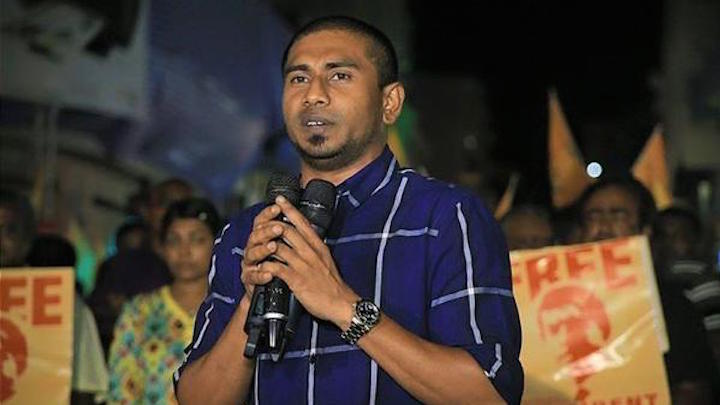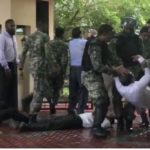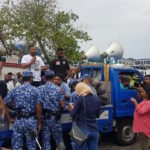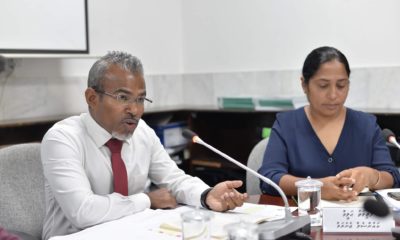The Inter-Parliamentary Union has called on the Maldivian authorities to transfer MP Ahmed Mahloof to house arrest to serve the remainder of a prison sentence on controversial charges of obstructing police officers.
Expressing concern about “the severity of the sentence” handed to the Independent MP, the international organisation of parliaments said it “fails to understand the justification for his conviction and sentence.”
The IPU’s governing council, after considering the findings of a delegation that visited the Maldives in October, has decided to send a trial observer to follow Mahloof’s appeal proceedings, and urged the high court to swiftly address the appeal “with full respect for fair-trial standards.”
Mahloof, an outspoken critic of President Abdulla Yameen and the spokesperson of the united opposition coalition, was jailed for 10 months and 24 days in July on two counts of obstructing police duty.
He was found guilty of scaling barricades and trying to enter the restricted Republic Square during an opposition protest on the night of March 25, 2015, and then of trying to “flee” from the police after a remand hearing at the criminal court on April 3.
The IPU delegation – comprised of the president of its Committee on the Human Rights of Parliamentarians, Fazle Chowdhury, and one of its members, Fawzia Koofi – noted contradictions in the accounts of the authorities, Mahloof’s wife and others over “the facts and legal basis” of the case.
“The delegation fails to understand how it can be argued that Mr. Mahloof would have tried to flee from the police in the presence of a sizeable police force at the court building,” reads the preliminary observations of its fact-finding mission conducted from October 10 to 12.
The delegation expressed hope that the lawmaker will be allowed to serve his sentence in house arrest “in light of reports about Mr. Mahloof’s poor health”.
Mahloof’s wife has accused the prisons authority of failing to provide her husband with proper medical care. She said last week that the authorities have ignored requests to authorise Mahloof to seek treatment overseas as advised by a doctor.
Despite the jail term, Mahloof retains his seat as a sitting MP is only disqualified if he is sentenced to more than one year in prison. However, he cannot attend parliamentary sittings or committee meetings.
The MP for Galolhu South has also petitioned the UN Working Group on Arbitrary Detention to declare his imprisonment as illegal and politically motivated.
The IPU delegation also noted the failure to investigate and prosecute death threats issued against opposition MPs and apprehend the masterminds of the murder of MP Afrasheem Ali.
In 2014, the IPU singled out Maldives as having submitted the most number of complaints by MPs of human rights abuses, including assault and arbitrary detention.
Earlier in the year, the union suggested that the authorities’ response to the growing number of threats against MPs would represent a test of the Maldives’ democracy.
The delegation went on to express concern with the criminalisation of defamation and the restriction of the constitutional right to protest.
“Although the delegation agrees that freedom of expression is not absolute, it considers that the new legislation overly restricts the exercise of this right, due to its scope, the vagueness of some of its key provisions and the hefty fine imposed as punishment,” it said.
“Similarly, although it understands that Malé is a small island prone to congestion, it also believes that legislation on the right to freedom of assembly should at all times have real practical meaning.”
The freedom of assembly law was revised by the ruling party-controlled parliament to limit demonstration to one location in the capital.
The delegation also expressed concern with the fast-tracking of legislation without consultation and the failure of parliament to exercise oversight “even in the face of serious issues warranting public scrutiny.”





















